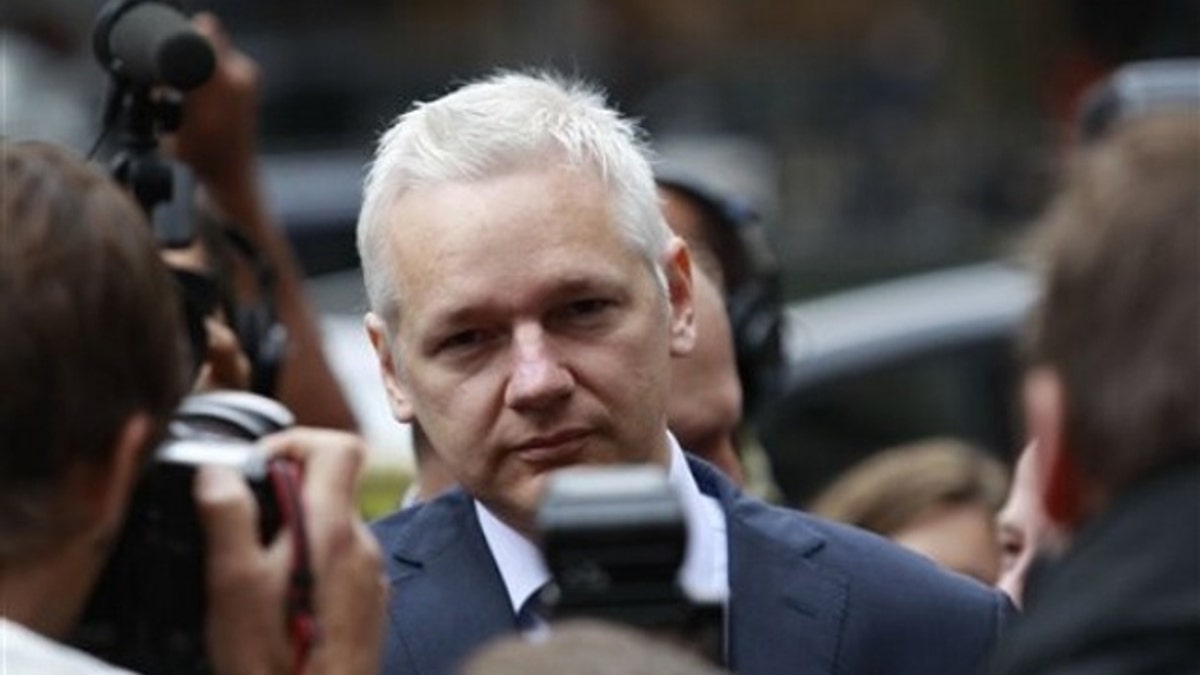
WikiLeaks head Julian Assage. (AP)
McLEAN, Va. – A small California-based Internet provider is the second company to confirm it fought back against a court demanding a customer's account information as part of a criminal investigation into the release of documents by WikiLeaks.
Federal prosecutors in Alexandria are leading a grand jury investigation of the WikiLeaks disclosures, the largest leak ever of classified American documents.
On Monday, the CEO of Sonic.net, an Internet provider in Santa Rosa, Calif., confirmed his company tried unsuccessfully to vacate a court order requiring it to divulge certain account information about one of its customers, a WikiLeaks supporter named Jacob Appelbaum.
The story was first reported by the Wall Street Journal. The Journal said Google had also been subjected to a similar order, but it was unknown whether Google fought the court order or turned over any information. Google declined comment to the Journal and did not return emails from The Associated Press seeking comment.
Twitter is currently appealing a similar order demanding information about the accounts of Appelbaum and two other WikiLeaks supporters. Earlier this year, a magistrate judge ruled that the court orders were valid.
The court orders do not seek the substance of electronic correspondence like individual tweets or e-mail text, but they do seek addresses that can be used to determine with whom an account holder is corresponding.
In a hearing defending the validity of the orders, an assistant U.S. attorney said the orders are routine and regularly obtained by prosecutors across the country.
The law -- the Stored Communications Act -- allows prosecutors to obtain certain electronic data without a search warrant or demonstrating probable cause. Instead, the government must only show that it has a reasonable belief that the records it seeks are relevant to an ongoing criminal investigation.
Some privacy advocates have said the law is insufficient and that e-mail users should enjoy a greater level of protection. The American Civil Liberties Union, among others, joined Twitter in challenging the orders. They argue that free speech would be chilled if individuals knew that corresponding electronically could result in their being subjected to a government investigation.
Sonic's CEO, Dean Jasper, declined to comment on the court order, beyond confirming that Sonic had fought the order and lost. The relevant court orders remain under seal.
When prosecutors first obtained the court orders in December, they targeted accounts held not only by WikiLeaks supporters but also WikiLeaks founder Julian Assange and Pfc. Bradley Manning, who is being held in military detention amid allegations that he leaked classified documents about the Iraq and Afghanistan wars to WikiLeaks..
